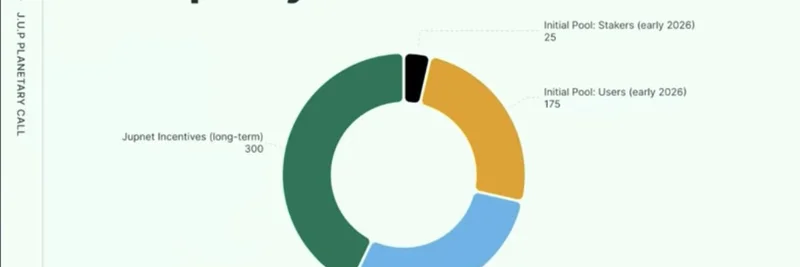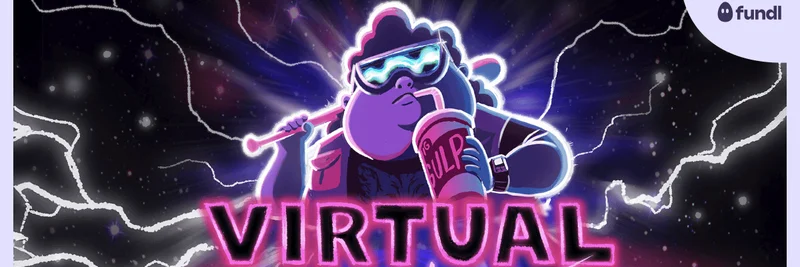If you're deep into Solana's DeFi scene, you've probably heard about Jupiter, the popular DEX aggregator known for its token JUP. Recently, Fabiano Solana shared his thoughts on the upcoming Jupuary 2026 – that's Jupiter's annual airdrop event where tokens are distributed to users and stakers. His tweet thread breaks down the allocations and raises some valid concerns about the changes from last year. Let's unpack what he said and what it means for the community.
Key Allocations in Jupuary 2026
Fabiano starts by highlighting the main buckets for the 700 million JUP tokens being distributed. Here's a quick rundown:
175M to Users: This is a big drop from the 425M users got last year. Regular swap users won't qualify unless they're using Jupiter's Ultra feature, which is a premium trading tool. This could exclude a ton of casual participants. Fabiano notes that with Jupiter's high fees for perpetual futures (perps, which are leveraged trading contracts), he'd prefer a bigger slice for users to keep engagement high.
25M to Stakers: Down from 75M last year, this feels like a raw deal for long-term holders who stake their JUP to support the network. Stakers are the loyal backbone, but they're getting a smaller share.
200M Bonus Pool: This is a fresh idea that Fabiano likes. It's reserved for those who hold onto their airdrop tokens until January 2027. It's a way to reward patience and discourage quick sells, potentially stabilizing the token price.
300M for Jupnet Incentives: Jupnet is Jupiter's upcoming layer-2 solution on Solana, aimed at scaling DeFi operations. Fabiano thinks this is smart but wishes it was announced earlier and put to a community vote, as per DAO (decentralized autonomous organization) norms.
The pie chart from the thread visually captures these splits, with the largest chunk going to long-term incentives.
Community Reactions and Concerns
The thread sparked replies that echo mixed feelings. For instance, @andrea_sicky pointed out that stakers are only getting about 3.57% of the total, which seems unfair, especially since some DAO holdings might circle back to the team. @molusol praised the bonus pool and Jupnet focus but noted that excluding free swaps could weed out farmers – those who game the system for rewards without real engagement.
Others like @0xPheaD acknowledged Jupiter's challenges, including competition from new DEXes and lending platforms, but remain optimistic. @steveXQ600 criticized the shift as "buying growth" at the expense of current users, questioning the early snapshot announcement that might encourage short-term farming.
Fabiano himself corrected the year to 2026 and emphasized he's still bullish on Jupiter overall. The mechanics aim to reduce token emissions (the rate at which new tokens are released), which can help control inflation, but the abrupt changes stray from the community-building vibe of past Jupuaries.
What This Means for Meme Token Enthusiasts
While JUP isn't purely a meme token, its airdrop events have a viral, community-driven energy that resonates with the meme coin world on Solana. These distributions can pump liquidity and hype, similar to how meme tokens like DOGE or SHIB reward holders. If you're farming or staking in Solana ecosystems, this highlights the importance of staying updated on protocol changes – they can directly impact your rewards.
For blockchain practitioners, it's a reminder that even established projects like Jupiter are evolving. Reducing emissions might make JUP scarcer and more valuable long-term, but it risks alienating the base. Keep an eye on Jupiter's official updates and community forums for any votes or adjustments.
In the end, Fabiano's take captures the balance between innovation and loyalty. If you're holding JUP, that bonus pool might just be the incentive to HODL a bit longer. What's your view on these changes? Drop a comment or check out more Solana insights on Meme Insider.



